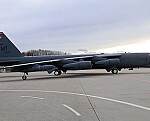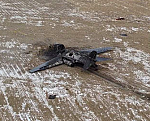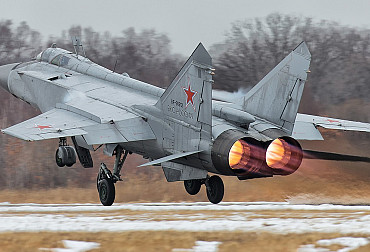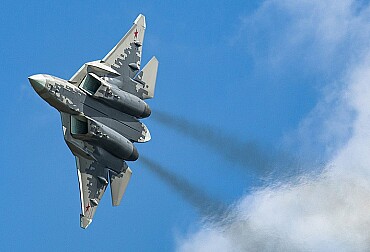Japan grounds its V-22 Ospreys and ask USA to do the same after fatal crash off Japanese island
In a significant and unprecedented move, Japan has formally requested the United States to ground its V-22 Osprey fleet temporarily. This request comes in the wake of a tragic incident involving an American V-22 Osprey tiltrotor, which crashed off the Japanese coast, resulting in the loss of at least one life among the eight individuals on board. The incident has prompted concerns about the safety of these aircraft, both in Japan and the United States.

Chief Cabinet Secretary Hirokzu Matsuno, one of Japan's highest-ranking officials, made the formal request to halt all non-emergency American V-22 flights over Japanese territory "until their safety is confirmed." Japan has also taken the step of grounding its own Osprey fleet as a precautionary measure. Taro Yamato, a senior defense ministry official, revealed during a hearing at the Japanese Diet that Japan plans to suspend flights of its 14 Osprey aircraft temporarily. This includes the cancellation of a planned training flight scheduled to take place at the Metabaru army camp in southern Japan.
The ill-fated V-22 Osprey, which crashed off the shore of Yakushima Island, was assigned to the 353rd Special Operations Wing and based at Yokota Air Base. It had been conducting a routine training mission when the mishap occurred. Tragically, the search and rescue mission is ongoing as the remaining crew members are still missing.
In response to Japan's concerns, Japanese Foreign Minister Kamikawa Yoko met with American Ambassador Rahm Emmanuel at the Ministry of Foreign Affairs. During this meeting, Minister Yoko requested "confirmation of related facts and prompt information sharing with the Japanese side, as well as the flight operations of Japan-deployed V-22s to be conducted after undergoing necessary examination of the flight safety of the aircraft." In turn, Ambassador Emmanuel assured Japan that the United States is actively investigating the causes of the crash and is committed to closely coordinating and sharing information with the Japanese government.
This incident underscores Japan's historical concerns about the V-22 Osprey. The Japanese government had initially been reluctant to acquire these tiltrotor aircraft due to the perception that they were plagued by safety issues during their early days, resulting in several deadly crashes. However, over time, the Osprey has become a trusted workhorse for both the United States and Japan.
It's worth noting that earlier this year, the U.S. Marines grounded an unspecified number of Ospreys due to a technical issue known as the "hard clutch problem." Fortunately, the Japanese Osprey fleet, being the newest in the sky, was not affected by this problem, and the U.S. Marines expressed confidence in their management of the issue. The Air Force Special Operations Command (AFSOC) also grounded its Osprey fleet in 2022 for a safety check, subsequently clearing the aircraft for flight again in September of the same year.
As investigations into the recent crash continue, both Japan and the United States are keen to ensure the safety of these versatile aircraft. The temporary grounding of the V-22 Osprey fleet serves as a precautionary measure while authorities work diligently to determine the cause of the tragic incident and address any potential safety concerns. The outcome of these investigations will play a crucial role in shaping the future of Osprey operations in the region.










